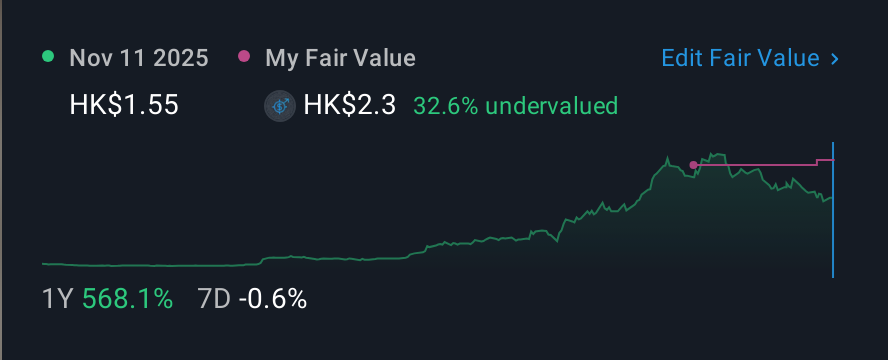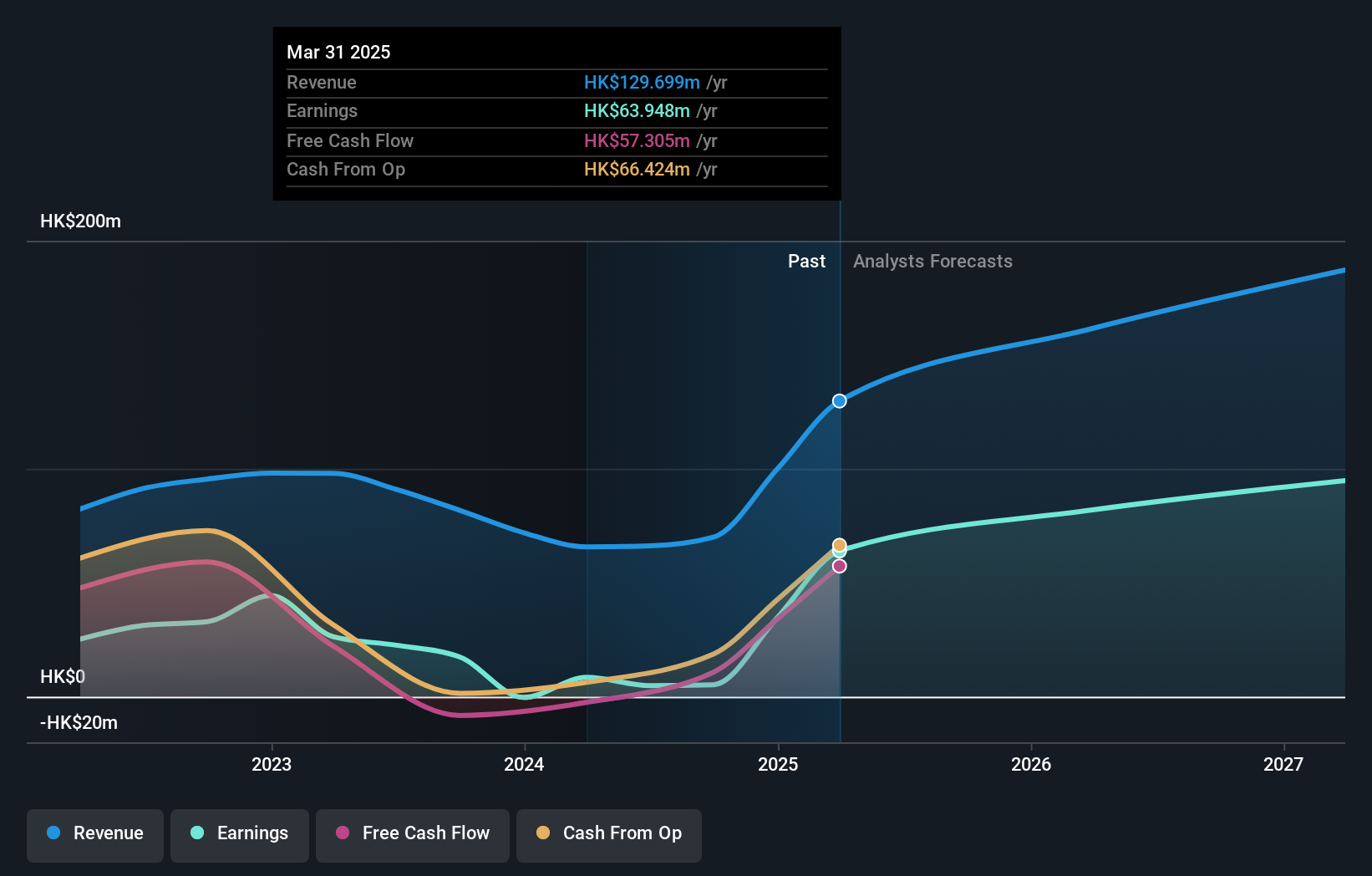- Hong Kong
- /
- Capital Markets
- /
- SEHK:8017
TradeGo FinTech Limited's (HKG:8017) market cap rose HK$187m last week; individual investors who hold 42% profited and so did insiders

Key Insights
- The considerable ownership by individual investors in TradeGo FinTech indicates that they collectively have a greater say in management and business strategy
- A total of 3 investors have a majority stake in the company with 52% ownership
- Insiders own 31% of TradeGo FinTech
Every investor in TradeGo FinTech Limited (HKG:8017) should be aware of the most powerful shareholder groups. The group holding the most number of shares in the company, around 42% to be precise, is individual investors. That is, the group stands to benefit the most if the stock rises (or lose the most if there is a downturn).
While individual investors were the group that reaped the most benefits after last week’s 24% price gain, insiders also received a 31% cut.
Let's delve deeper into each type of owner of TradeGo FinTech, beginning with the chart below.
Check out our latest analysis for TradeGo FinTech

What Does The Lack Of Institutional Ownership Tell Us About TradeGo FinTech?
Institutional investors often avoid companies that are too small, too illiquid or too risky for their tastes. But it's unusual to see larger companies without any institutional investors.
There are many reasons why a company might not have any institutions on the share registry. It may be hard for institutions to buy large amounts of shares, if liquidity (the amount of shares traded each day) is low. If the company has not needed to raise capital, institutions might lack the opportunity to build a position. On the other hand, it's always possible that professional investors are avoiding a company because they don't think it's the best place for their money. TradeGo FinTech's earnings and revenue track record (below) may not be compelling to institutional investors -- or they simply might not have looked at the business closely.

Hedge funds don't have many shares in TradeGo FinTech. The company's CEO Yong Liu is the largest shareholder with 28% of shares outstanding. With 20% and 4.3% of the shares outstanding respectively, Shenzhen Kingdom Sci-Tech Co., Ltd and TradeGo FinTech Limited., Employee Stock Ownership Plan are the second and third largest shareholders.
After doing some more digging, we found that the top 3 shareholders collectively control more than half of the company's shares, implying that they have considerable power to influence the company's decisions.
While it makes sense to study institutional ownership data for a company, it also makes sense to study analyst sentiments to know which way the wind is blowing. There is some analyst coverage of the stock, but it could still become more well known, with time.
Insider Ownership Of TradeGo FinTech
The definition of company insiders can be subjective and does vary between jurisdictions. Our data reflects individual insiders, capturing board members at the very least. Management ultimately answers to the board. However, it is not uncommon for managers to be executive board members, especially if they are a founder or the CEO.
Most consider insider ownership a positive because it can indicate the board is well aligned with other shareholders. However, on some occasions too much power is concentrated within this group.
Our information suggests that insiders maintain a significant holding in TradeGo FinTech Limited. Insiders own HK$296m worth of shares in the HK$971m company. This may suggest that the founders still own a lot of shares. You can click here to see if they have been buying or selling.
General Public Ownership
The general public, who are usually individual investors, hold a 42% stake in TradeGo FinTech. This size of ownership, while considerable, may not be enough to change company policy if the decision is not in sync with other large shareholders.
Private Company Ownership
It seems that Private Companies own 3.3%, of the TradeGo FinTech stock. Private companies may be related parties. Sometimes insiders have an interest in a public company through a holding in a private company, rather than in their own capacity as an individual. While it's hard to draw any broad stroke conclusions, it is worth noting as an area for further research.
Public Company Ownership
We can see that public companies hold 20% of the TradeGo FinTech shares on issue. We can't be certain but it is quite possible this is a strategic stake. The businesses may be similar, or work together.
Next Steps:
It's always worth thinking about the different groups who own shares in a company. But to understand TradeGo FinTech better, we need to consider many other factors. Case in point: We've spotted 2 warning signs for TradeGo FinTech you should be aware of, and 1 of them can't be ignored.
But ultimately it is the future, not the past, that will determine how well the owners of this business will do. Therefore we think it advisable to take a look at this free report showing whether analysts are predicting a brighter future.
NB: Figures in this article are calculated using data from the last twelve months, which refer to the 12-month period ending on the last date of the month the financial statement is dated. This may not be consistent with full year annual report figures.
Valuation is complex, but we're here to simplify it.
Discover if TradeGo FinTech might be undervalued or overvalued with our detailed analysis, featuring fair value estimates, potential risks, dividends, insider trades, and its financial condition.
Access Free AnalysisHave feedback on this article? Concerned about the content? Get in touch with us directly. Alternatively, email editorial-team (at) simplywallst.com.
This article by Simply Wall St is general in nature. We provide commentary based on historical data and analyst forecasts only using an unbiased methodology and our articles are not intended to be financial advice. It does not constitute a recommendation to buy or sell any stock, and does not take account of your objectives, or your financial situation. We aim to bring you long-term focused analysis driven by fundamental data. Note that our analysis may not factor in the latest price-sensitive company announcements or qualitative material. Simply Wall St has no position in any stocks mentioned.
About SEHK:8017
TradeGo FinTech
An investment holding company, provides integrated securities trading platform services to brokerage firms and their clients in Hong Kong and the People’s Republic of China.
Flawless balance sheet with solid track record.
Similar Companies
Market Insights
Community Narratives



